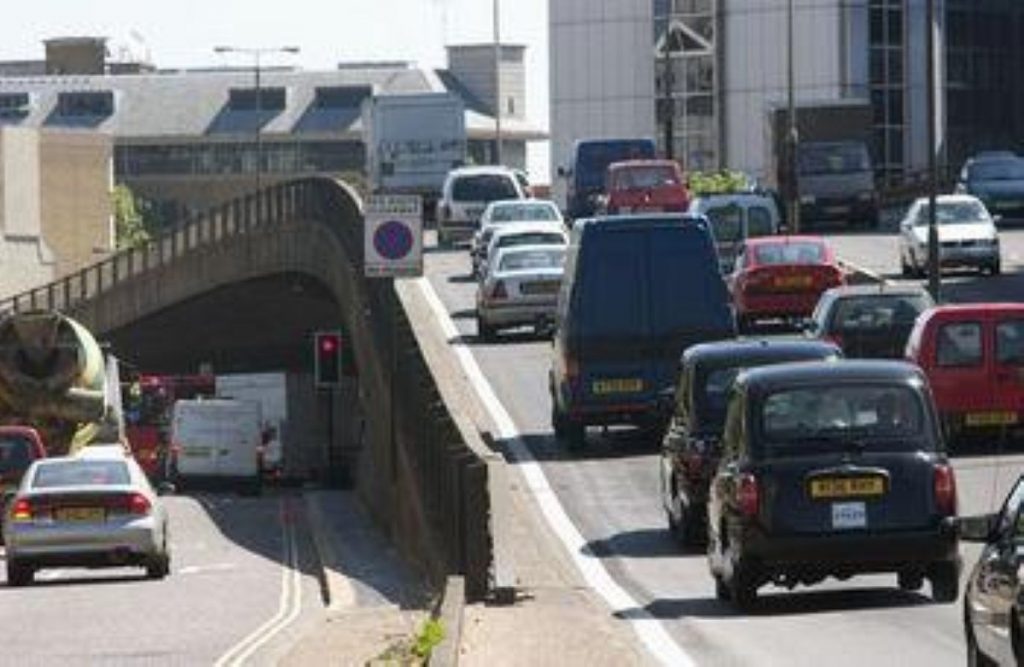Budget 2012: PM sees UK roads’ salvation in private sector
By Alex Stevenson Follow @alex__stevenson
Britain's road network will be opened up to investment from the private sector under government plans unveiled by David Cameron this lunchtime.
The prime minister used a major speech on infrastructure to outline his plans to get more money spent on the UK's national roads network, reducing the £7 billion he claimed is currently lost every year because of congestion.
He suggested that sovereign wealth funds, pension funds and other investors will be considered as potential sources of spending, opening up the possibility of Chinese firms holding major stakes in Britain's infrastructure.


"Why is it that other infrastructure – for example, water – is funded by private sector capital through privately owned, independently regulated utilities, but roads in Britain call on the public finances for funding?" Mr Cameron asked.
"We need to look urgently at the options for getting large-scale private investment into the national roads network."
A feasibility study of new ownership and financing models is now being considered. The Department for Transport and the Treasury are to begin carrying out a feasibility study and will report this autumn.
Mr Cameron also suggested that new roads could be part-financed by more tolls, but that this funding method would not be introduced for existing routes.
"We don't have enough capacity in places of key demand. There's nothing green about a traffic jam – and gridlock holds the economy back," he added.
"So here's what we should do. Yes, move passengers and heavy goods onto rail. But also widen pinch points, add lanes to motorways by using the hard shoulder to increase capacity and dual overcrowded A-roads."
Labour has attacked the plans, claiming they will create a "road-charging free-for-all" which will punish motorists already enduring the burden of record fuel prices.
"Instead of easing the burden on drivers and boosting our stalled economy through a temporary cut in VAT, Ministers look set to let private companies take over the strategic road network and charge drivers for access," shadow transport secretary Maria Eagle said.
"These proposals risk simply driving traffic on to local roads, increasing congestion and emissions while yet again setting back efforts to improve safety."
Last year's Budget included substantial infrastructure investment, with capital spending brought forward to boost road improvements across the country.
Mr Cameron insisted more needs to be done despite last year's "good start". He acknowledged that "frankly, there isn't enough money".
The prime minister argued that Britain has "fallen behind" when it comes to its infrastructure, slipping behind its competitors and letting down the UK's "world-beating, pioneering tradition".
"Its value lies in its ability to make things possible tomorrow that we cannot even begin to imagine today," he said.
"If our infrastructure is second-rate, then our country will be too. We used to understand this in Britain."
Labour has warned the proposed changes will lead to a repeat of the rail privatisation experience, which saw "powerful vested interests… rip off passengers while increasing the cost to the taxpayer".
Ms Eagle added: "Motorists now seem set to be in the firing line for the next phase of the Tories' ideologically driven rip off culture."









